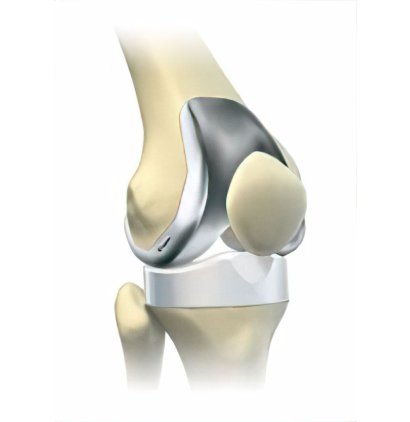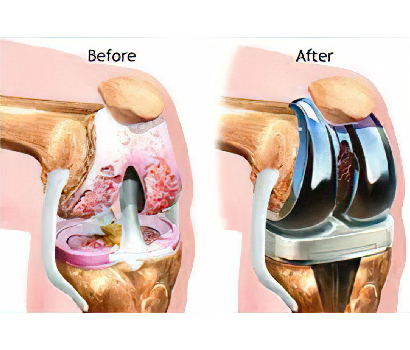TKR replaces damaged knee components with artificial parts. It alleviates pain and enhances mobility.
Welcome to YKOrthopaedics.
Home / Total Knee Replacement In Gorakhpur
Consult Dr Yugal Karkhur for TKR Surgery in Gorakhpur
or an online consultation

With over a decade dedicated to Orthopaedics & joint replacement, Dr Yugal Karkhur is a distinguished name in the field. He earned his credentials from Maulana Azad Medical College, New Delhi and subsequently held a significant role as a Senior Registrar at premier establishments like Lok Nayak Hospital and Sushruta Trauma Centre. He now serves with distinction as the Senior Consultant for Orthopaedics and Joint Replacement at Narayana Superspeciality Hospital in Gurugram. Dr Yugal’s pursuit of excellence took him to the Missouri Orthopaedic Institute, USA, where he specialized in joint replacement and Adult hip preservation surgery. His proficiency encompasses arthroscopic surgeries acquired from Safdarjung Hospital’s Sports Injury Center. Gurgaon’s medical community respects him for his associations with CK Birla Hospital, Aarvy Healthcare Superspeciality Hospital, and his innovative venture as co-founder of Orthocure Surgery+ at Orthocure Clinics Pvt Ltd. With 17 published Research Papers and the 2016 Young Ambassador Award from the Asia Pacific Orthopaedic Association to his name, Dr Yugal’s commitment to orthopaedic advancement is evident.
Decoding Total Knee Replacement (TKR)
Total Knee Replacement (TKR) refers to an orthopaedic surgery where the damaged knee joint surfaces are replaced with prosthetic alternatives. Designed for pain alleviation and restoring joint function, TKR becomes vital when conditions, including rheumatoid arthritis, compromise knee mobility.
- TKR targets the affected surfaces of the knee.
- Prosthetic replacements are employed in the process.
- Primary objectives include pain relief and joint function restoration.
- Conditions such as rheumatoid arthritis can warrant TKR.
- It’s also a solution for extensive knee joint wear.
- Chronic pain and joint stiffness are addressed through TKR.

Source:- physioheal.com
Hear Dr. Yugal speak about TKR
Watch Dr Yugal’s informative Reel Content
Commonly asked Questions Before Total Knee Replacement

Can I do physiotherapy to avoid surgery?
Does my condition really need surgery?
Does it take months to recover after surgery?
Will I be able to return back to sports?

Will my knee become weaker after surgery?

Does the surgery involve large cuts and blood loss?
Have you been recommended to go in for Total knee replacement?
Get an expert opinion.

Source:- physioheal.com
When should one consider Total Knee Replacement (TKR)?
Total Knee Replacement becomes a viable option when persistent knee pain or dysfunction severely impacts daily activities. Particularly for those with degenerative joint diseases or chronic knee issues, seeking advice from an orthopaedic specialist is essential to evaluate the need for TKR.
- When chronic pain hinders daily tasks.
- Progressive loss of knee joint function.
- An indication might be underlying conditions like rheumatoid arthritis.
- When conservative treatments no longer offer relief.
Advantages Of Total Knee Replacement

A minimally invasive surgical experience

A faster recovery process

Negligible infection chances

Quick and effective return to daily life activities

Minimal loss of blood
FAQ’S
TKR addresses severe knee damage, often from osteoarthritis. It restores functionality and reduces pain.
Recovery typically takes 3 to 6 months. Factors include individual healing and adherence to rehabilitation.
Prosthetics are made from ceramic, plastic, or metal. The choice varies based on patient needs and the surgeon’s recommendation.
The operation spans 1 to 2 hours. The specific duration might vary.
With proper care, artificial knees last 15 to 20 years. Longevity depends on factors like activity level and weight.
Yes, many patients gradually return to activities. Always follow rehabilitation guidelines and consult with your therapist.
Physiotherapy is essential post-TKR. It maximizes recovery and ensures joint mobility.
Patients often walk, with support, the day after TKR. Progress depends on individual recovery.
It’s possible, but it depends on individual health. Surgeon discretion plays a vital role.
Most patients report major pain reduction post-TKR. Quality of life typically improves.
Patients’ health, quality of the implant, and post-op care are vital. Regular check-ups and therapy can also impact outcomes.

